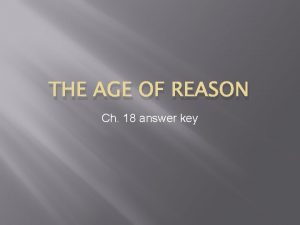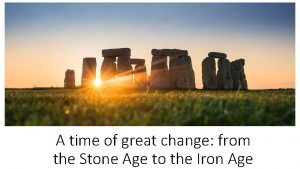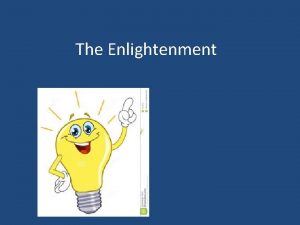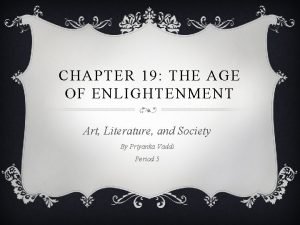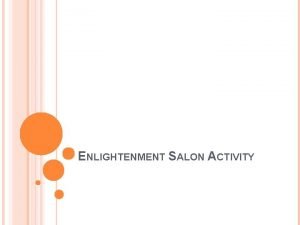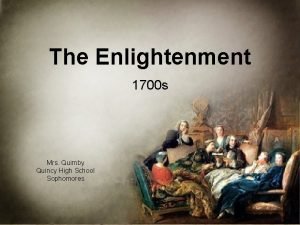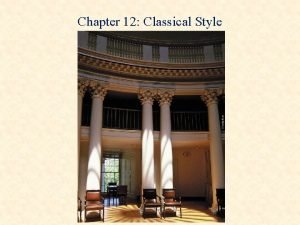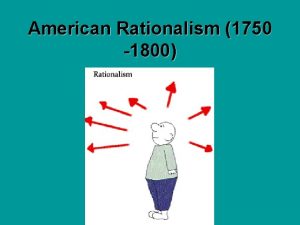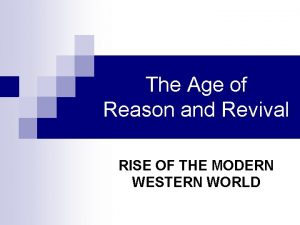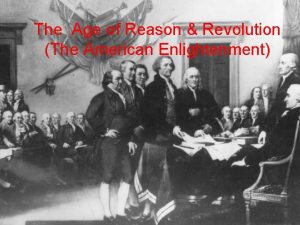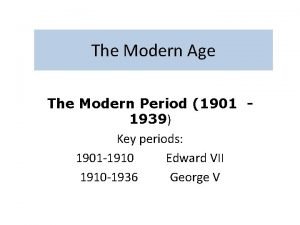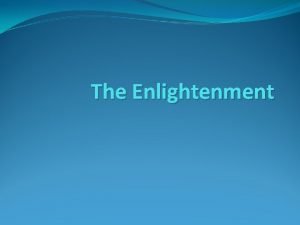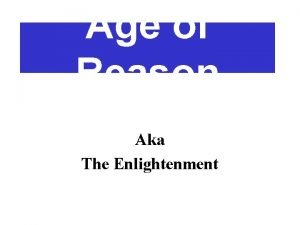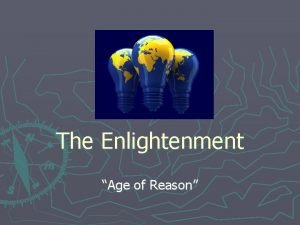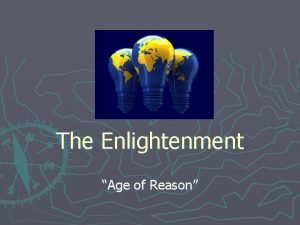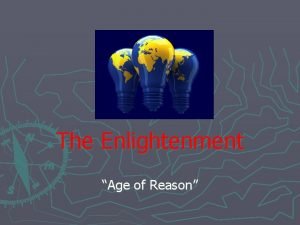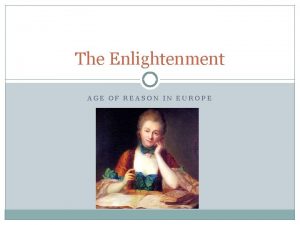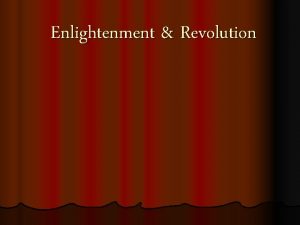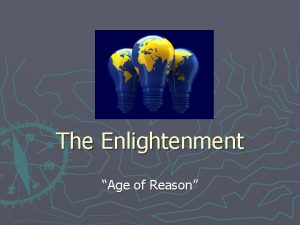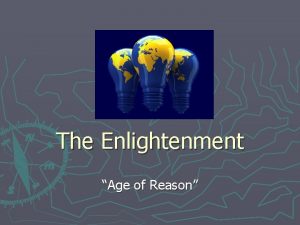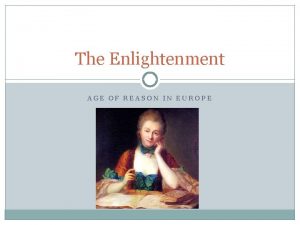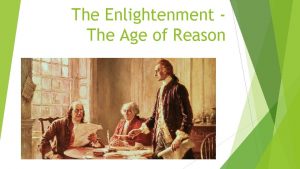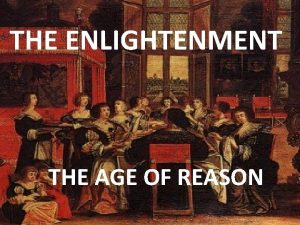The Enlightenment Age of Reason A World of














- Slides: 14

The Enlightenment Age of Reason

A World of Progress and Reason n Grew out of the Scientific Revolution Use reason to discover natural laws Laws that govern human nature The use of reason could solve social, political and economic problems

The Social Contract n n An agreement that people enter to give up a state of nature for an organized society Philosophers disagreed about what kind of government is best

Laissez-faire n Allowing business to operate with little or no government interference

Thomas Hobbes n n The Leviathan People are naturally cruel, greedy, selfish Need to be strictly controlled An absolute monarchy was needed

John Locke n n n Two Treatises on Government People basically reasonable & moral Natural rights – life, liberty, property Governments formed to protect those rights Limited government is the best kind

Baron de Montesquieu n n The Spirit of the Laws Admired limited monarchy of England Separation of powers – protect liberties Three branches n n Legislative Executive Judicial Checks and balances

Voltaire n n French philosophe Defended freedom of speech Used wit and sarcasm to expose abuses – offensive to Church and state “I do not agree with a word that your say, but I will defend to the death, your right to say it. ”

Jean-Jacques Rousseau n n n The Social Contract People basically good Society corrupts Individuals give up self-interest for the common good Government based on consent of governed

Adam Smith n n n The Wealth of Nations British economist Free market – supply and demand control market Supported laissez-faire No government regulation

Enlightened despots Absolute rulers who used their power to bring about political and social change

Frederick the Great n n n King of Prussia (17401786) “servant of the state” Admired Voltaire Improved agriculture Tolerant of religions Tried to make government efficient

Catherine the Great n n n Empress of Russia in 1762 Reforms in law and government Spoke out against serfdom

Joseph II n n n n Hapsburg emperor of Austria “peasant emperor” Chose talented men to run government Ended censorship Tolerated religions Built hospitals Abolished serfdom
 The age of reason answer key
The age of reason answer key Iron age bronze age stone age timeline
Iron age bronze age stone age timeline Iron age bronze age stone age timeline
Iron age bronze age stone age timeline Age of enlightenment thinkers
Age of enlightenment thinkers Age of enlightenment art
Age of enlightenment art Enlightenment salon party answers
Enlightenment salon party answers It is called the age of reason
It is called the age of reason It is called the age of reason
It is called the age of reason It is called the age of reason
It is called the age of reason American rationalism
American rationalism Age of reason and revival
Age of reason and revival American age of reason
American age of reason Montesquieu definition world history
Montesquieu definition world history Bone age greater than chronological age
Bone age greater than chronological age Victorian age and modern age
Victorian age and modern age
